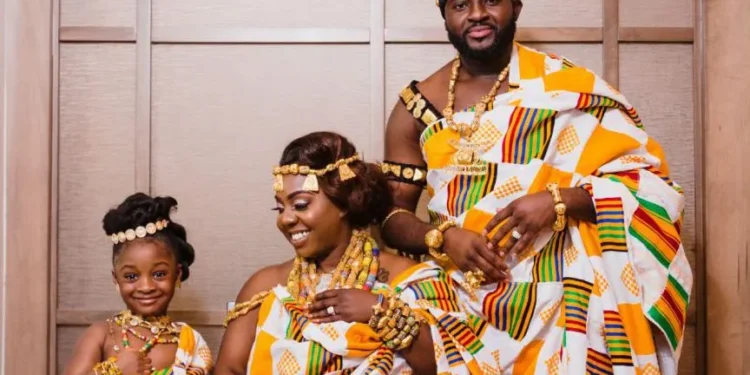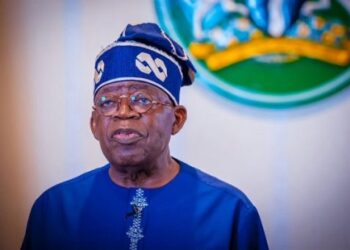The Ashanti people, one of the largest ethnic groups in Ghana, have a rich history that spans centuries. They are known for their sophisticated political system, vibrant culture, and deep traditions.
The Ashanti Kingdom, which emerged in the 17th century, was one of the most powerful and influential empires in West Africa. At its peak, the Ashanti Empire controlled vast territories and was renowned for its military prowess, wealth from gold trade, and a well-organised central government under a king known as the Asantehene.
The Ashanti people were instrumental in shaping the region’s history, with their kingdom being a major player in trade and diplomacy.
Ashanti culture is rich with rituals, music, dance, and art, reflecting the community’s deep spirituality and respect for tradition.
The Ashanti are famous for their Kente cloth, a brightly colored woven fabric that carries symbolic meaning and is worn during important ceremonies. Here are 20 interesting facts about the people.
1. Rich Cultural Heritage
The Ashanti (or Asante) are part of the Akan ethnic group, known for their vibrant culture, traditions, and contributions to Ghanaian history.
2. Ashanti Empire
The Ashanti Empire was one of the most powerful and wealthy African states in the 17th and 18th centuries, known for its sophisticated governance and military strength.
3. The Golden Stool
The Golden Stool (Sika Dwa Kofi) is the most sacred symbol of the Ashanti Kingdom. It represents the soul of the Ashanti people and their unity.
4. Centralized Governance
The Ashanti people have a centralized political system with the Asantehene (King) as the leader. The Asantehene governs alongside a council of chiefs.
5. Kente Cloth
The Ashanti are famous for weaving the colorful and intricate **Kente cloth**, a symbol of royalty, prestige, and tradition.
6. Matrilineal Society
Ashanti society is matrilineal, meaning lineage and inheritance are traced through the mother’s side of the family.
7. Oral Traditions
The Ashanti have a strong oral tradition. Folktales, proverbs, and stories are used to pass down knowledge, history, and cultural values.
8. Ancestral Worship
Ashanti spirituality places emphasis on ancestors. They believe ancestors play a vital role in the lives of the living and offer guidance and protection.
9. The Ashanti Language
They speak **Twi**, a dialect of the Akan language, which is widely spoken in Ghana and recognized for its tonal complexity.
10. Festivals
The Ashanti celebrate several festivals, with the most notable being **Akwasidae**, a traditional event held every six weeks to honour ancestors and the Golden Stool.
11. Cocoa Production
The Ashanti region is a significant contributor to Ghana’s cocoa production, making the area central to the country’s economy.
12. Resistance Against Colonization
The Ashanti fiercely resisted British colonization, resulting in several Anglo-Ashanti Wars from 1824 to 1901.
13. Adinkra Symbols
The Ashanti developed **Adinkra symbols**, which convey traditional wisdom, concepts, and philosophical ideas. These symbols are used in art, textiles, and architecture.
14. Skilled Artisans
The Ashanti are skilled goldsmiths, woodcarvers, and potters. Their craftsmanship in gold jewelry and stools is particularly renowned.
15. Ashanti Food
Staple dishes include fufu, ampesi (boiled yam or plantain with stew), and **banku**, often served with spicy soups or stews.
16. Belief in Nyame
The Ashanti believe in Nyame, the supreme deity, alongside other lesser gods and spirits connected to nature.
17. The Role of Women
Women hold significant positions in Ashanti society, particularly as queen mothers who advise the chief and play a role in leadership and governance.
18. Capital: Kumasi
Kumasi, the cultural and historical capital of the Ashanti people, is known as “The Garden City” and is home to the Manhyia Palace.
19. Ashanti Military Organization
The Ashanti were known for their advanced military strategies and use of iron weapons, contributing to the empire’s dominance.
20. Influence on Ghana’s Identity
The Ashanti culture and traditions are deeply embedded in Ghana’s national identity, from symbols on the Ghanaian coat of arms to national pride in Kente cloth and festivals.


















































































 EduTimes Africa, a product of Education Times Africa, is a magazine publication that aims to lend its support to close the yawning gap in Africa's educational development.
EduTimes Africa, a product of Education Times Africa, is a magazine publication that aims to lend its support to close the yawning gap in Africa's educational development.